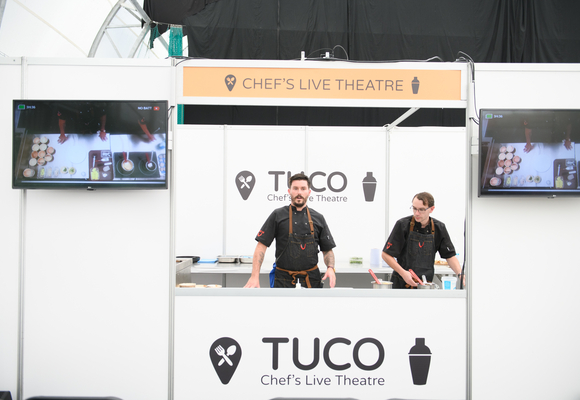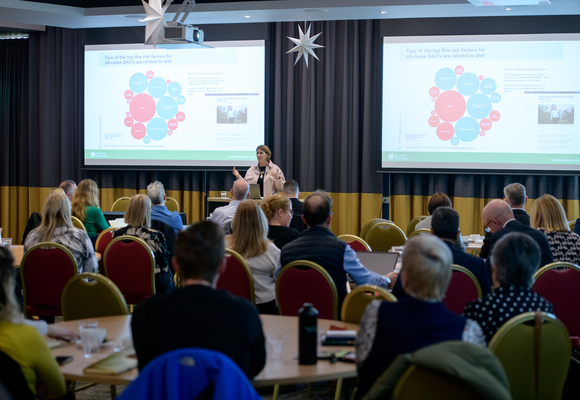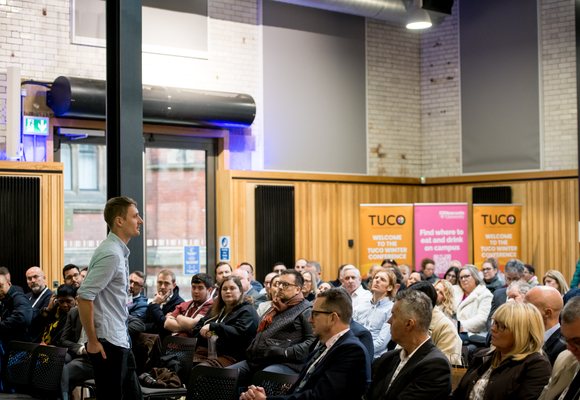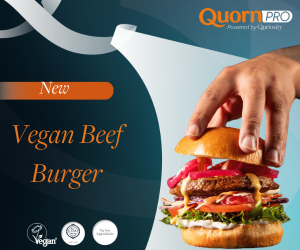 In contrast to Vietnam, it is quieter, calmer and less imposing. Buildings are not allowed to be taller than Angkor Wat, and therefore span no more than four storeys high. Its less populated, and less polluted. Life is not laid bare on the streets like Vietnam. In fact, it is illegal to cook or wash on the streets in the cities of Cambodia.
In contrast to Vietnam, it is quieter, calmer and less imposing. Buildings are not allowed to be taller than Angkor Wat, and therefore span no more than four storeys high. Its less populated, and less polluted. Life is not laid bare on the streets like Vietnam. In fact, it is illegal to cook or wash on the streets in the cities of Cambodia.
The first dinner for the group costs $11 (£8) each for a set menu in a modern restaurant boasting a cocktail bar. Eating out in Siem Reap generally costs around $3-5 (£30) a price few locals can afford. Main meals are taken at lunch and dinner where several dishes including rice are eaten at the same time. Breakfast is also served hot, and usually consists of rice and pork. Rice is such a vital component to every Cambodian meal that ‘nyam bai howie nov?’ (have you eaten rice yet?) is a daily Khmer greeting.
The group of nine delegates from the University of Cardiff, University of Kent, London School of Economics, Royal Holloway University of London, the University of Warwick and two supplier delegates from Bidfood and Open-Door PR take a visit to Champet Cooking School to embrace the first hand, local techniques and recipes.
The class starts with a visit to the local market to purchase ingredients. Like Vietnam, only fresh will do, although the chef later lets slip he uses a fridge and a freezer. It’s estimated approximately 50% of urban residents now have a fridge. That figure drops to nearly zero when applied to rural Cambodia.
Fish is caught at the lake and brought to the market before 7am. It's laid with other vegetables and produce on the floor, tightly snuggled between sellers and buyers. Tables are a rarity in the food markets. In fact, the group later learn that all furniture if difficult to purchase. Devastated from recurrent war, Cambodia doesn’t have any infrastructure or manufacturing industry and most foods have to be imported at astronomical cost. Cambodians continue to struggle from earning very little but paying very high prices. A university lecturer tells us they paid more than £130 per chair. The exception is for food, where a barter economy helps to keep the prices down.
tightly snuggled between sellers and buyers. Tables are a rarity in the food markets. In fact, the group later learn that all furniture if difficult to purchase. Devastated from recurrent war, Cambodia doesn’t have any infrastructure or manufacturing industry and most foods have to be imported at astronomical cost. Cambodians continue to struggle from earning very little but paying very high prices. A university lecturer tells us they paid more than £130 per chair. The exception is for food, where a barter economy helps to keep the prices down.
 Back at the school, the group use traditional Khmer spices and vegetables including galangal) a rhizome which culinary and medicinal uses), kaffir lime, edible flowers, banana blossom and water lily to make a three-course meal. Fresh spring rolls - Cambodia’s most famous dish, Khmer fish amok (fish curry); and a sweet special fried banana make up the dishes taught. The group are given cutlery to eat with, as has become more common in the cities. In the villages, only chopsticks are used, crafted by hand from local bamboo or palm.
Back at the school, the group use traditional Khmer spices and vegetables including galangal) a rhizome which culinary and medicinal uses), kaffir lime, edible flowers, banana blossom and water lily to make a three-course meal. Fresh spring rolls - Cambodia’s most famous dish, Khmer fish amok (fish curry); and a sweet special fried banana make up the dishes taught. The group are given cutlery to eat with, as has become more common in the cities. In the villages, only chopsticks are used, crafted by hand from local bamboo or palm.
Fish is the most common protein eaten in Cambodia, due to the extensive rivers that run through it. On the second day the group visit Tonlé Sap Lake, the largest freshwater lake in Southeast Asia, and take a boat trip to experience the extraordinary floating villages.
Before reaching the river, they travel through the many villages that line the riverbank and TUCO are invited to watch villagers smoke fish at the side of the road. It is a commonly held belief in the Khmer countryside that if you walk seven steps with someone, you have become friends. It seems on this visit to be true.
Houses on stilts fill both sides of the riverbank. With no running water or infrastructure, car batteries are used for electricity and clay pots are used to purify river water. With only two seasons, wet and dry, the river breaches its banks for more than six months of the year, and the villages have to evacuate to the cities.

Taking a boat on the lake, the group experience the humbling life there. A vast source of food for Cambodia, the lake is also home to 8,000 inhabitants of the floating village Kompong Khleang. Living entirely on the river, they catch fish and harvest rice, using it to eat and exchange for essentials. From the riverbank, the market stallholders of Siem Reap visit every day to buy their produce. A kilo of Jasmine rice sells for 65 cents (45p. and long grain rice for 45 cents (30p) per kilo.
Embracing tourism in the last 15 years has been a catalyst for change in Cambodia. A country devastated by a legacy of war and genocide, it is a nation deficient in personal freedoms and suffers from high rates of poverty and hunger.
Child labour and war has led to a low life expectancy in Cambodia and has stifled personal development, particularly in education. Pissa Chem, a 36-year-old Cambodian working in tourism, articulates a sentiment echoed throughout:
“I wanted to go to school but when I told my parents they cried. They called our relatives round and they all cried. They begged me not to go. They were fearful.”
Despite his grandmother, Un Poch, being imprisoned for running a school in the village, Pissa is cheerful about his future. He is one of few who have been to university and hopes to put his children through higher education too.
There are not the only barriers to education; finance plays a large part too. School costs around £20-£30 (£17) per child per year and university considerably more. The École Paul Dubrule, run by director Helga Nagy, costs around $900 (£630). The fee includes uniform and lunch and the course runs for 10 months, of which two months are spent at internships with hotels or travel agencies. Few Cambodians can afford it and nearly 100% of places are sponsored.
Set up by French philanthropist, businessman and founder of Accor hotels, Paul Dubrule, the university is a not-for-profit, non-governmental organisation. Founded in 2002, it was launched at the end of a passionate bicycle ride by Dubrule from Paris to Siem Reap. The bike ride took eight months and covered 15,200km. today the university provides training to 300 students a year from 1,500 applications and boasts 2,900 graduates.
Helga explains her challenges are not purely educational: “When students first arrive, they are mostly malnourished and unclean without showers at home. We have various other challenges around students fainting and ill health. To help overcome this, we built the accommodation block with showers and provide clean clothing (uniform). Lunch is provided within their fee, and although they all get the same size portion we let them go up as many times as they need.”
The university takes its pastoral care very seriously and now also serves breakfast. There is a small cost of around 20p, and cooked rice and pork is provided. The university serves 460 covers at lunch in an outdoor restaurant and students are expected to work there on rotation. They serve an a la carte and set menu. No vegan menus are available as of yet.
The group visit a class learning how to pronounce menus in English, before touring the facilities which appear modern and clean. Students learn French closing and traditional dishes such as beef wellington, along with silver service to prepare them for jobs within five-star hotels. The university has its own bakery and produces patisserie. Helga has an impressive track record for student employment with nearly all students going into immediate full-time work.
Built like a hotel, the university runs a formal reception desk and offers four luxury hotel rooms sponsored by international hotel chains, to paying customers. Sold for around £30 per night, the students service the rooms as they would in a real-life hotel. Head chefs in five-star hotels can earn up to £1,000 and chefs around £350. With £250 considered a good wage in Siem Reap, it's clear why Helga is so passionate about upskilling locals to take the place of international staff brought in to run the hotels.
Helga is also quick to recognise the university’s shortcomings. As of yet, they have no spa or conference facilities to train students with, but no one in the group is left in any doubt that she will fulfil her ambitious plans. Like TUCO and its members, her passion to upskill students and staff is demonstrated at every touchpoint.

"It was thoroughly excellent, well organised and fulfilled its brief whilst being enjoyable."
– Delegate from Open Door PR
"All of it, as it was such an experience overall, given the colleagues, countries visited, cultural learning of so many aspects."
- Delegate from Warwick University
"After seeing the benefits this gives, I would love to see some of my chefs at LSE go on a tour now..."
- Delegate from London School of Economics










